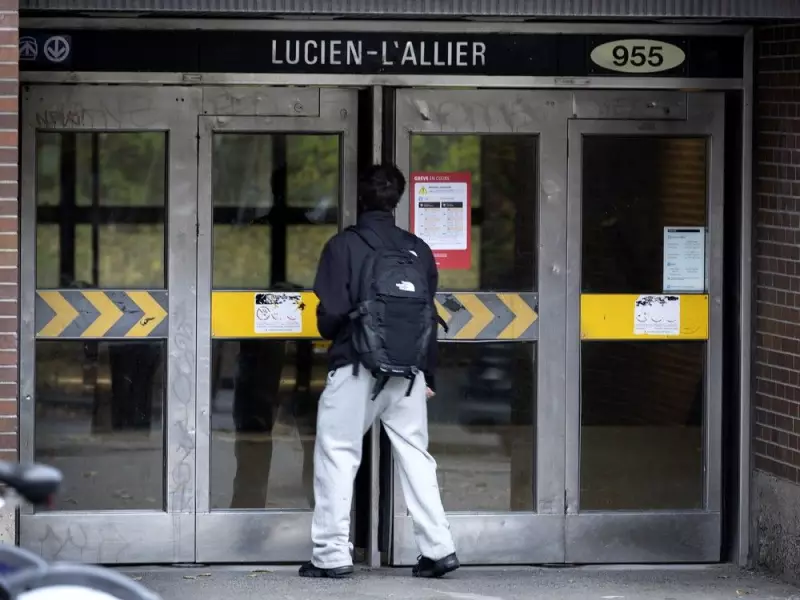
Montreal commuters faced a brutal reality check this morning as the first major work stoppage by STM employees brought the city's public transit system to a near-standstill. The unprecedented four-week disruption promises to reshape how Montrealers navigate their city, with today's morning rush hour offering a grim preview of what's to come.
Major service reductions have left bus and metro riders scrambling for alternatives. The STM has confirmed that 80% of its bus routes are completely suspended during peak hours, while metro service operates on severely reduced schedules. This has created perfect storm conditions for what many are calling "the worst commute in recent memory."
Commuter Nightmare Unfolds
Across the city, normally bustling metro stations stood eerily quiet while roads transformed into parking lots. The few remaining buses in service became immediately overwhelmed, with wait times stretching beyond an hour at many stops. Commuters reported arriving at bus stops as early as 5:30 AM only to find already-formed crowds of frustrated riders.
Key impacts include:
- Bus service reduced to 20% of normal capacity during rush hours
- Metro trains running at 25-50% of regular frequency
- Major transfer points like Berri-UQAM and Lionel-Groulx experiencing critical overcrowding
- Accessible transport options severely limited for mobility-impaired riders
Traffic Gridlock and Alternative Options
The ripple effects extended far beyond transit stations. Major arteries including Highway 15, the Decarie Expressway, and the Metropolitan Boulevard saw traffic volumes double typical Monday morning levels. Commuters who normally rely on public transit turned to personal vehicles, ride-sharing services, and bicycles in massive numbers.
Bixi stations near downtown and major employment hubs were completely emptied by 7:30 AM, while ride-sharing apps showed surge pricing reaching 300% above normal rates. The situation became so dire that some employers advised staff to work from home if possible, recognizing the near-impossible commuting conditions.
What's Behind the Labor Dispute?
The massive service disruption stems from failed negotiations between the STM and three major unions representing approximately 5,000 employees. Key sticking points include:
- Wage increases that keep pace with inflation
- Work schedule flexibility and overtime compensation
- Pension plan improvements for new hires
- Working conditions and safety protocols
Union representatives have stated they're prepared to maintain the pressure tactics for the full four weeks if necessary, while STM management continues to urge a return to negotiations. Both sides appear entrenched in their positions, suggesting Montrealers should prepare for an extended period of transit uncertainty.
Survival Tips for Commuters
For those facing weeks of disrupted commutes, transportation experts recommend:
- Carpool coordination with neighbors and colleagues
- Flexible work hours to avoid peak traffic periods
- Exploring alternative routes beyond usual travel patterns
- Combining multiple transport methods (bike + metro, for example)
- Patience and extra travel time - at least double normal commute duration
The STM has established an information hotline and real-time service updates through their mobile app, though many users reported system crashes due to overwhelming demand this morning.
As Montreal settles into what could be a month-long transit crisis, the economic impact is already becoming apparent. Businesses report increased employee tardiness, while downtown merchants worry about reduced foot traffic. The true test may come later this week as commuters develop new routines - and patience wears increasingly thin.





